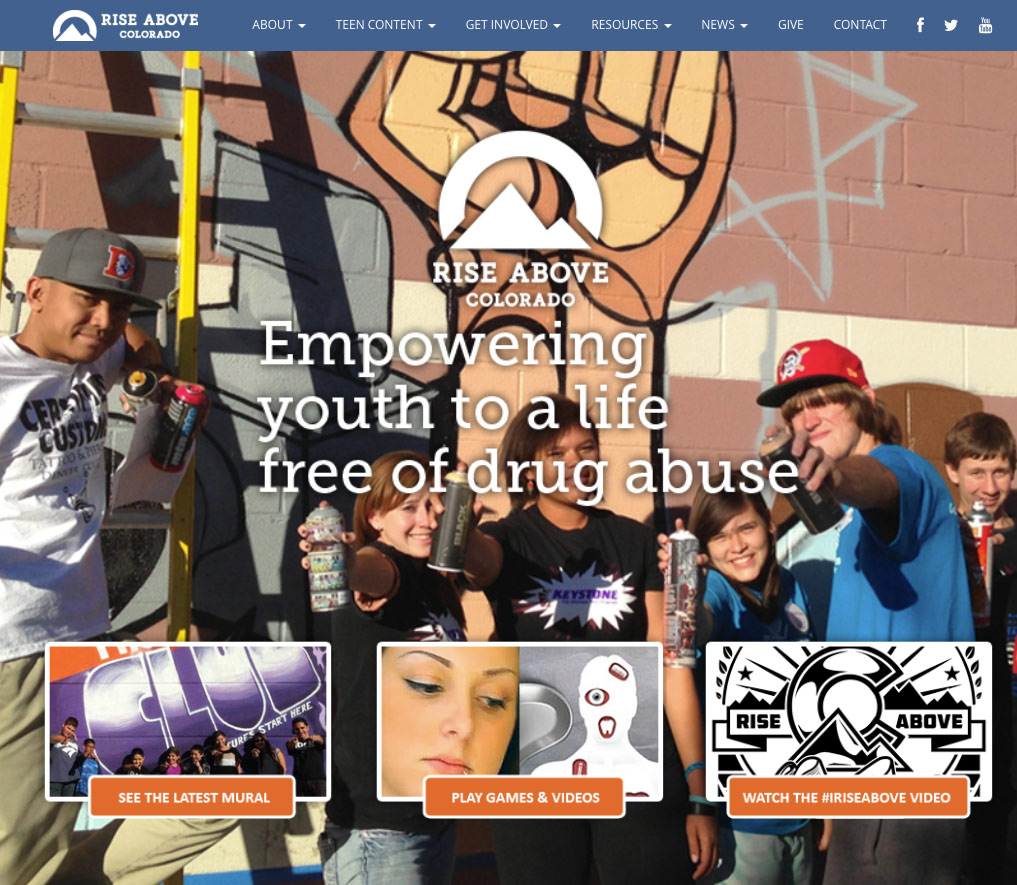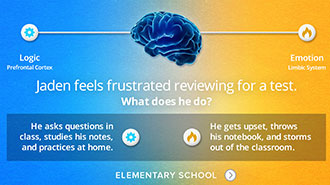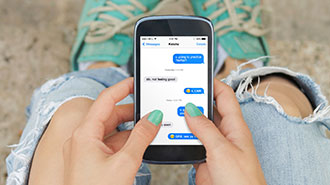RISE ABOVE COLORADO
RISE ABOVE COLORADO IS A STATEWIDE ORGANIZATION EMPOWERING TEENS TO LIVE A LIFE FREE OF DRUG ABUSE.
Rise Above Colorado was created by a dedicated and passionate team from the Colorado Meth Project who are committed to helping teens learn about drug abuse so they can make empowered, positive, smart choices -- to lead the healthy life they deserve.
Rise Above Colorado’s efforts build on the success of the Colorado Meth Project’s “Not Even Once” campaign. Rise Above will maintain focus on methamphetamine abuse along with a new prescription drug initiative and general drug prevention resources in collaboration with The Partnership for Drug-Free Kids, a national non-profit organization working to help families solve the problem of teen substance abuse. Utilizing best practices for public awareness and community outreach, Rise Above Colorado shapes teens’ attitudes and perceptions about drugs through proactive education programs, with an ultimate goal of reducing usage patterns.



